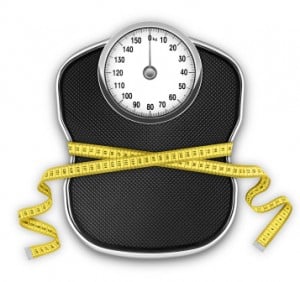It’s the same every January. Silly diet season opens as the sloth and gluttony of the holiday season comes to an end and lots of people are looking for a quick fix to undo the damage.
 Diet season opens and people are the prey
Diet season opens and people are the prey
The trouble with diets is that there is no one diet approach that has been proven to work better than any others. It’s amazing though, that people keep paying for hope — hope that a new diet approach will work like magic, fix their past health transgressions and somehow deliver a perfect-10 body.
Many new diet books are hitting bookstores and online retailers in the coveted year-end/new year time slot to coincide with resolutions. You may be tempted by titles like The Bulletproof Diet, by Dave Asprey, “a Silicon Valley investor and technology entrepreneur who spent fifteen years and over $300,000 learning to hack his own biology. Dave lost one hundred pounds without counting calories or doing excessive exercise; upgraded his IQ by more than twenty points; and lowered his biological age-all the while learning to sleep better in less time,” according to the author’s bio on Amazon.
Who doesn’t want to reap all of those benefits? Take a moment or three to read Julia Beluz’ story on Vox.com, The Bulletproof Diet is everything wrong with eating in America and find out why she says this diet “is like a caricature of a bad fad-diet book.”
A few other new book releases are: The 20/20 Diet: Turn Your Weight Loss Vision Into Reality by Dr. Phil McGraw; The Adrenal Reset Diet by Alan Christianson NMD; The Skinny Jeans Diet (Kindle) by Lyssa Weiss; and hey, there’s even the Wolverine Diet if you want to channel Hugh Jackman by doing olympic-style weightlifting and intermittent fasting followed by binge eating (and don’t mind jacking up your cholesterol and straining your kidneys at the same time). I haven’t read any of them, because over the years I feel like have read the over-hyped promises before. Too many fad diets have promised a new twist that will solve the weight loss puzzle with a magical, over-simplified solution. Too many are based on anecdotal stories or cherry-picked studies or worse, non-evidence based conclusions.
Detoxes and cleanses are baloney
It may be psychologically compelling to undo the damage from overindulging in too much fat, added sugar and alcohol over the holidays by doing a ‘detox’ or a ‘cleanse,’ but the human body already does a fine job eliminating toxins. Not convinced? Check out this excellent post, The Detox Delusion by pharmacist Scott Gavura who blogs at Science Based Pharmacy. He explains that the term ‘detox’ is “a legitimate medical term being turned into a marketing strategy. In the setting of real medicine, detoxification means treatments for dangerous levels of drugs, alcohol, or poisons, like heavy metals. Detoxification treatments are medical procedures that are not casually selected from a shelf or from a menu of alternative health treatments. They’re provided in hospitals when there are life-threatening issues.” He then debunks the most common detox kit ingredients, milk thistle and laxatives, and outlines the potential health risks.
Four years ago, I knew a woman in her early thirties who had been convinced by her track coach that she needed to “lean out” so she could improve her competitive race times and recommended she do the Master Cleanse diet. The thing is, she already had a healthy body weight and didn’t need to lose any! The Master Cleanse, also known as the lemonade diet, requires that you consume nothing except a drink made of water, lemon juice, cayenne pepper and maple syrup for at least 10 days, up to 40 days. To ensure ‘toxins’ are eliminated, you also drink saltwater and laxative tea twice a day. At one point, the woman lost 18 lbs in four weeks, became depressed, mentally unstable and anorexic in both mind and body. She ended up in hospital with a heart rate in the low 30s and with electrolytes so low her doctors said she was lucky to be alive.
Time to get real
Instead of looking for a quick fix, resolve to make changes to your diet and fitness routine that you can do for the rest of your life. Long-lasting weight loss success is possible, but it takes a consistent, sensible approach — not detoxes or cleanses, fad diets, or special products. Long-lasting health means eating smart (lots of veggies, choose lean protein sources, whole grains; minimize processed food and added sugar), staying fit, getting a good night’s sleep, not smoking, limiting your alcohol intake, and reducing stress. Yeah, I know, you knew those already, right? Consistent, small changes are not as dramatic as a quick fix, but they are proven to work if you’re looking for results that last.
If you want to learn what evidence-based experts are saying about what’s wrong with how we eat, watch Fed Up, the “film the food industry doesn’t want you to see.” It’s an eye-opening film about how and why obesity is on the rise. I would also recommend reading The Diet Fix: Why Diets Fail and How to Make Yours Work by Dr. Yoni Freedhoff. He outlines the top ten diet mistakes and myths and shows you how to adjust whatever diet you’ve been following to help you achieve long-lasting success.
Related post: How to kick the added sugar habit

 Diet season opens and people are the prey
Diet season opens and people are the prey